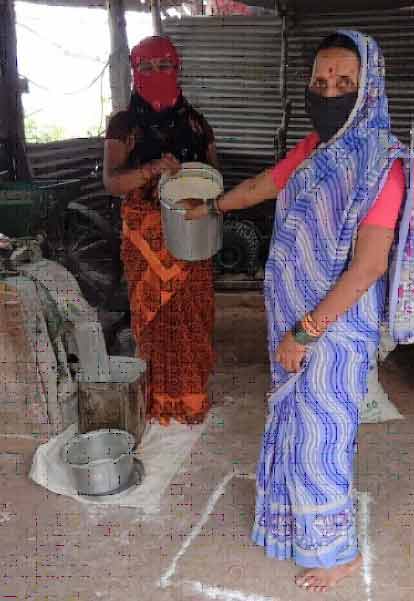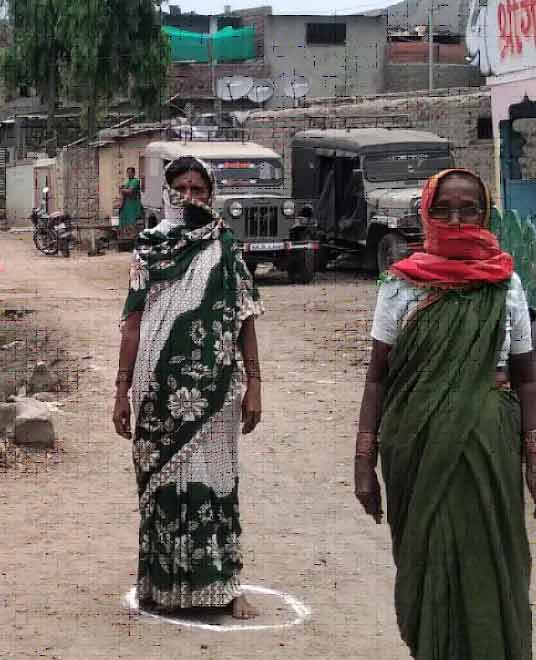Evan Blake
An additional 4.4 million Americans filed for unemployment last week, bringing the total number of people who have filed jobless claims over the past five weeks to 26 million. Prior to the start of the COVID-19 pandemic, 7.1 million people were already unemployed in the US, meaning that roughly 33 million are now officially unemployed, or over 20 percent of the labor force. The social impact of the pandemic on the US has in some ways already dwarfed that of the 2008 financial crisis, and the unemployment rate is rapidly approaching that of the height of the Great Depression in 1933, roughly 25 percent.
As of Thursday, there were 880,204 confirmed cases of COVID-19 and 49,845 deaths in the US, with cases and deaths continuing to grow rapidly.
The official unemployment figures, while staggering in themselves, are known to be a significant underestimation of the true levels of unemployment in the US. Approximately 11.3 million undocumented immigrants live in the US and are barred from applying for unemployment benefits. An untold number of these workers have been laid off, cast into destitution without any supports whatsoever.
 Together Omaha food pantry workers load supplies into a vehicle driving up to the pantry in Omaha, Neb., Thursday, April 23, 2020. (AP Photo/Nati Harnik)
Together Omaha food pantry workers load supplies into a vehicle driving up to the pantry in Omaha, Neb., Thursday, April 23, 2020. (AP Photo/Nati Harnik)
In addition, hundreds of thousands, if not millions of workers have been unable to navigate the complicated online application process, which in some states such as Michigan is the only possible way to apply, as phone applications have halted. It can take days and hundreds of call attempts just to speak with someone. For those whose claims are denied, there is no simple appeals process in most states, and little if any assistance is provided to help these workers.
Millions of workers whose claims have been approved have yet to receive any actual payments. In this regard, the most egregious state has been Florida, where less than 16 percent of all claimants who filed since March 15 have received benefits.
In Ohio, claims for the supplemental $600 provided by the federal government through the Pandemic Unemployment Assistance program will not be processed until May 15. Pennsylvania only began accepting applicants for this program a few days ago and has not said when benefits will be paid.
For the millions of Americans that have yet to receive unemployment benefits, most are facing financial ruin. A January survey by Bankrate found that only 41 percent of Americans had enough saved to cover a $1,000 emergency. Millions face the prospect of eviction or sliding deeper into debt, which will only compound the immense suffering wrought by the pandemic.
A particularly stark expression of the rapid growth of mass poverty in the US has been the miles-long lines at food banks in cities across the country, as millions now struggle to afford food for their families.
Similar processes are unfolding on a global scale, with the number of unemployed rising astronomically in every country. On Tuesday, the United Nations’ World Food Programme (WFP) warned that up to 265 million people around the world are in danger of starvation and death stemming from the COVID-19 pandemic.
Jay Bryson, acting chief economist at Wells Fargo & Co, told Bloomberg News that the number of weekly unemployment claims is beginning to slow down, but “if we open up too soon and this coronavirus comes roaring back then we may in fact see those sorts of numbers again.”
As states such as South Carolina, Georgia, Tennessee, Minnesota and Montana already begin to reopen their economies, amid growing calls by sections of the media and political establishment for a nationwide reopening without adequate safety measures in place, the ruling class is pursuing policies that threaten to produce a mass upsurge in the number of cases in May, with ensuing mass deaths shortly thereafter.
Efforts to quickly reopen the economy are driven solely by the profit motive, and the mass unemployment levels are being used as a cudgel to try to force workers to toil in unsafe conditions. In most states, if workers refuse work that is available, they become ineligible for unemployment benefits, placing enormous pressure on them to return to work despite facing unsafe conditions.
In the White House press conference Thursday, in response to a question about mass unemployment in the US, Trump stated, “I think our economy will start to pick up very substantially as soon as the states start to open.” He went on to make the threat, “They’re going to get back to work, and very fast.” At Monday’s press conference, Trump acknowledged that his administration is working to exempt corporations from legal liability for workers that contract COVID-19.
Georgia began to reopen barbershops, nail salons, tattoo parlors, gyms and other businesses today, with restaurants scheduled to reopen on Monday, under orders from Republican Governor Brian Kemp. More than 860,000 unemployment claims have been filed in the state since mid-March, costing over $500 million.
Employment lawyer James Radford commented to Reuters, “I think that one of the big drivers of this decision by Kemp is to get people off unemployment rolls and having the private sector keeping these people afloat.”
In the drive to restart the economy, capitalism is presenting the working class with the false dichotomy: return to work facing lethal conditions that put you and your family at risk or accept economic ruin with no social safety net whatsoever.
Workers in the US and internationally must reject the mounting calls for them to either return to work facing unsafe conditions or be thrust into abject poverty without any future. The only alternative path, which will become ever clearer in the eyes of millions, is that of socialist revolution. By taking control of the situation and seizing the wealth of the financial aristocracy, the working class can rapidly implement the measures necessary to contain the pandemic globally, provide safe working conditions to all essential workers, and ensure the health and well-being of all those whose labor is not essential.



